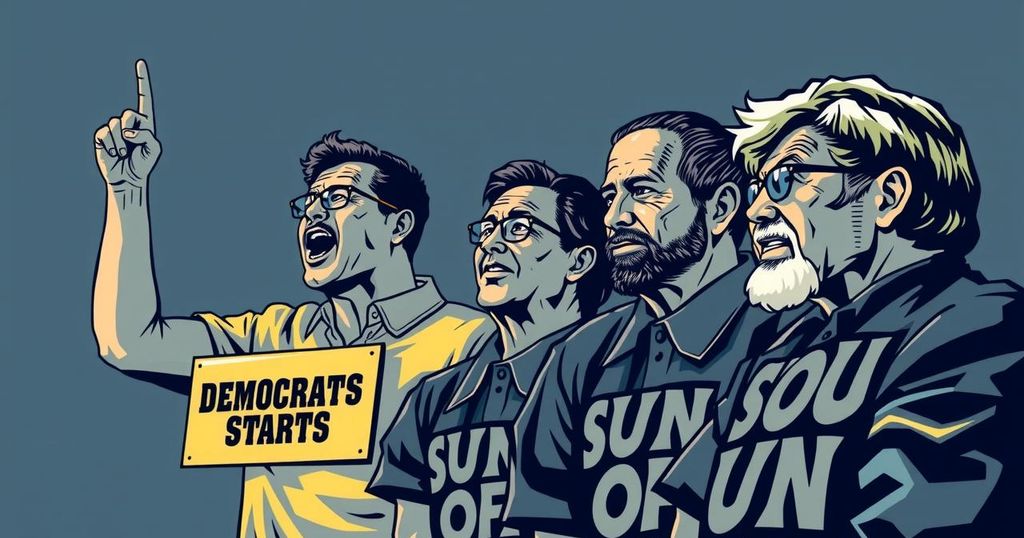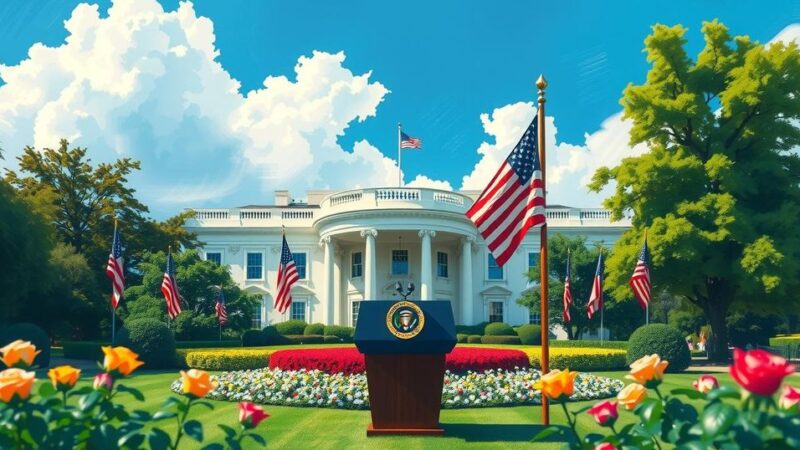The Democratic Party’s abandonment of working-class voters has led to electoral failures. Many voters feel economically neglected, frustrated by the leadership’s disconnect from their realities. Trump’s appeal lies in his populist critique of elitism despite his party’s policies opposing working-class interests. To regain credibility, Democrats must challenge powerful economic entities and prioritize the needs of their traditional voting base against the backdrop of rising inequality.
The Democratic Party currently faces significant challenges due to its drifting away from the working-class voter base. This shift in focus is evident through the experiences of individuals like the author’s father, who, despite his support for Democratic candidates, feels a disconnect from the party over economic issues. As many families struggle with financial difficulties, there is a palpable frustration regarding the Democratic leadership’s favorable narrative about the economy, which conflicts with the lived experiences of constituents. Voters are increasingly drawn to political figures who resonate with their discontent regarding cultural elitism, as illustrated by Trump’s strategy of positioning himself against what he perceives as a condescending elite class. Democratic leadership, represented by figures such as Senator Chuck Schumer, has evidently chosen strategies that cater to affluent suburban voters rather than honoring traditional working-class bases. Ultimately, this approach seeks transient electoral gains yet risks alienating the party’s fundamental support base, as reflected in the 2016 and 2024 elections where targeting affluent defectors proved counterproductive. The Democratic Party is caught in an ideological bind, attempting to balance its allegiance towards both the diverse working-class populace it historically championed, and the affluent donor class that currently fuels its financial stability. This dual loyalty hampers the candid engagement necessary to confront the underlying issues affecting working-class individuals—primarily the rising economic inequality that influences their daily struggles. In stark contrast, the Republican Party has effectively positioned itself as the champion of the working class. Nonetheless, their policies remain detrimental to the same demographic they claim to represent. Despite this discrepancy, Trump’s populist rhetoric gains traction by scapegoating cultural elites and resonating with the raw frustrations of voters who feel abandoned by the system. Thus, the responsibility falls upon the Democratic Party to clarify its narrative and re-engage with its base by taking decisive action against the powerful entities that exacerbate socioeconomic disparities. The party must advocate vigorously for working-class interests and vocally challenge affluent entities that benefit from systemic inequalities. Without significant shifts in policy focus and public engagement, the Democratic Party may further alienate its historical base, diminishing its electoral viability amidst a populace disillusioned with persisting inequities. With an evident absence of effective engagement and a clear messaging framework, Democrats must course-correct to reestablish trust with working-class voters. The necessity for a reevaluation and revitalization of the party’s approach towards the economic narratives affecting its constituents is imperative for its future success.
The decline in support for the Democratic Party among working-class voters is a growing concern. As these individuals navigate economic challenges, they increasingly feel neglected by the party. Previous electoral strategies employed by party leaders have prioritized affluent suburban demographics, ultimately disregarding the needs and grievances of their traditional working-class base. Historical context reveals that this shift has coincided with significant political losses for Democrats, underscoring the urgent need for reevaluation.
In summary, the Democratic Party must reassess its strategies to reconnect with working-class voters. By addressing economic injustices and reframing its communications to resonate authentically with the concerns of these constituents, the party may reverse its declining appeal. Failure to do so not only jeopardizes its electoral future but also risks leaving vast segments of the populace without effective representation against rising socioeconomic inequalities.
Original Source: www.aljazeera.com






